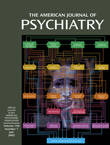To the Editor: Solar eclipses have been cloaked with myth and superstition since ancient times
(1), but scientific accounts of their psychiatric and public health impact are sparse
(2,
3). Specifically, the impact of a solar eclipse on suicide incidence has not yet been investigated, to our knowledge. We report the impact of the total solar eclipse of Aug. 11, 1999, on the incidence of suicide in Austria.
Apart from the turn of the millennium, the eclipse was the single most important media event in Austria in 1999. Extensive media coverage started months before, leading to collective anticipation in the population. With the last total solar eclipse over Austria occurring in 1842 and the next occurring in 2081, it was a once-in-a-lifetime experience for most Austrians. On eclipse day (a Thursday), 40% of the working population was on leave, and an estimated 750,000 of the country’s population of 8 million traveled into the narrow strip (110 km in length) of eclipse totality, causing traffic jams and public transportation disruptions.
We compared the incidence of suicide in a 4-week study period before eclipse day with the incidence of suicide during the corresponding 4 weeks in a 15-year comparison period. The latter yielded 2,269 suicides that occurred in Austria during the 4 weeks before August 11 in the years 1984–1998. The standardized incidence ratios, i.e., the observed numbers of suicides in the study period in relation to the expected numbers based on the comparison period, with 95% confidence intervals (CIs)
(4), for weeks 4, 3, 2, and 1 before eclipse day were 0.69 (CI=0.46–0.99), 0.68 (CI=0.42–0.97), 0.75 (CI=0.50–1.08), and 0.62 (CI=0.40–0.94), respectively. There was no decrease in suicide incidence on eclipse day (standardized incidence ratio=0.99 (CI=0.36–2.16). All six suicides on eclipse day were by men and occurred exclusively in the regions crossed by the path of totality, in which unusually large numbers of people gathered. In the weeks after eclipse day, the national suicide incidence did not significantly differ from expected numbers.
These data indicate an impact of the collective anticipation of eclipse day on the incidence of suicide in Austria. The lack of a decrease in suicides on eclipse day and the suicides’ spatial clustering correspond to the stressful circumstances owing to massive eclipse trekking. While previous research has highlighted the media’s role in triggering copycat suicides after suicide reports
(5), this finding is indicative of a suicide-preventive effect of media hypercoverage and collective anticipation of a positive event, probably by means of greater social cohesion.
On Aug. 21, 2017, for the first time since Feb. 26, 1979, the continental United States will experience a total solar eclipse. This nationwide event, with a coast-to-coast path of totality from Lincoln City, Ore., to Charleston, S.C., will be an excellent opportunity to examine the replicability of our findings.

